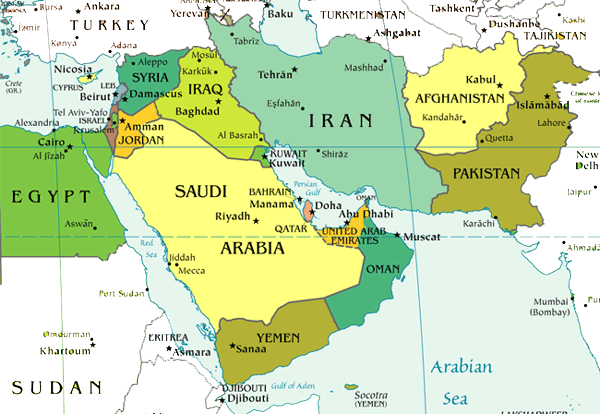
Mark Pellegrino is an American actor of film and television, best known for his work as Lucifer in Supernatural, Paul Bennett in Dexter, and Jacob in Lost. He is co-founder of The American Capitalist Party.
When it comes to Israel, people generally fall into two categories of thought. The first, is that Israel is an artificial construct of victorious European powers; that it is a result of imperialism and has no claim to legitimacy, and thus no right to exist. The second, is that Israel was founded by Jews thousands of years ago and has every right to exist as a Jewish state regardless of its modern origins. Which perspective is right? Both sides claim a kind of squatter’s status to the land. The first claims an Arab majority has lived in the region for millenia and that this majority cannot be removed by legal fiat. The second claims a historical connection to the land dating back to the Late Bronze and early Iron Ages which entitles an entire people – via a kind of historical deed – to resettlement and re occupation of a geographic area. Though I sympathize with this latter view in terms of verifiable ancestral origins making a clearer tie to the land; and though the idea of migration from one place to another seems, to me, to be a fundamental human right, I find neither argument (from indigenousness) suffices to establish legitimacy in the eyes of those who are undecided on the issue. Furthermore, the fact that indigenousness or the artificiality of redrawn borders is not much mentioned in the establishment of the legitimacy of any Arab state in the Middle East (which were almost universally formed in the same ‘arbitrary’ way as Israel) leads me to believe that something may be rotten in the state of Denmark with such a standard. So, perhaps it’s not the origins of a state that makes for its legitimacy, but rather something else entirely. And perhaps it is the evasion of this fact that shifts the argument constantly to indigenousness as a standard for the establishment of a rightful ‘state’.
Let’s face it, like ALL human knowledge the concept of the state has evolved over time; and, despite the resurgence of statism in the early and mid twentieth century, the idea that the state’s function is the protection of this little thing called ‘right’ has been a nearly impossible discovery to avoid. Even vile statist regimes must play to the notion that they are servicing rights by violating them, and spend much blood and money upholding that illusion. The inflation of rights and the establishment of modern democracies has been the mechanism by which statists maintain this fiction. But the awareness that such a fiction need be maintained shows an evolution. The evolution is this: that even statists recognize protection of right as the function that legitimizes a state. Anything other than rights protection is illegitimate. In other words, any state that practices rights protection is legitimate and has a right to exist (since its right is predicated upon the protection of rights). Any state that does not, or actively violates those rights is illegitimate (for the same reason).

So, it matters not that Arabs have lived in a certain geographic area for a thousand years; Or that Jews established the state of Israel a thousand years before the first Arabs settled there en masse. It matters not that an Empire fell and that the resultant power vacuum was filled by foreign powers (this has been the state pf affairs for that region since the beginning of time). It matters not that people emigrated to that region from far away lands with the intention to resettle, and that they were empowered by other nations to become a state. What matters is what the state became. Did it become an autocracy as Jordan, Syria, Iraq, Saudi Arabia, Gaza and The West Bank? Did it become a theocracy as Iran or a coalition of religious gangs as in Lebanon? Did it murder political dissenters as is done by EVERY state in the Middle East? Or did it protect the rights of conscience, assembly, dissent, and speech? Did it promote trade and tolerance? Did it protect property? If it did the latter, then it is a legitimate state formed for the legitimate function of the state: which is the protection of the individual’s right to life and the pursuit of his individual happiness. If it did the former then it is an illegitimate state; as no state that violates its legal sanction to uphold natural law can regard itself as a state regardless of its pretenses.
Herein lies the rub. If we looked beyond the tribalist’s claims to indigenous ownership and looked to what REALLY constituted a state’s right to exist we would find ourselves facing a serious revelation: That every state in the Middle East EXCEPT Israel is illegitimate and has no right, as presently constituted, to exist. It is a revelation that – if taken seriously by the rest of the world – could have the power to transform a region from the cauldron of conflict that it’s been since time immemorial, to the bastion of peace and harmony that the legitimate state of Israel has allowed us to glimpse as possible.



